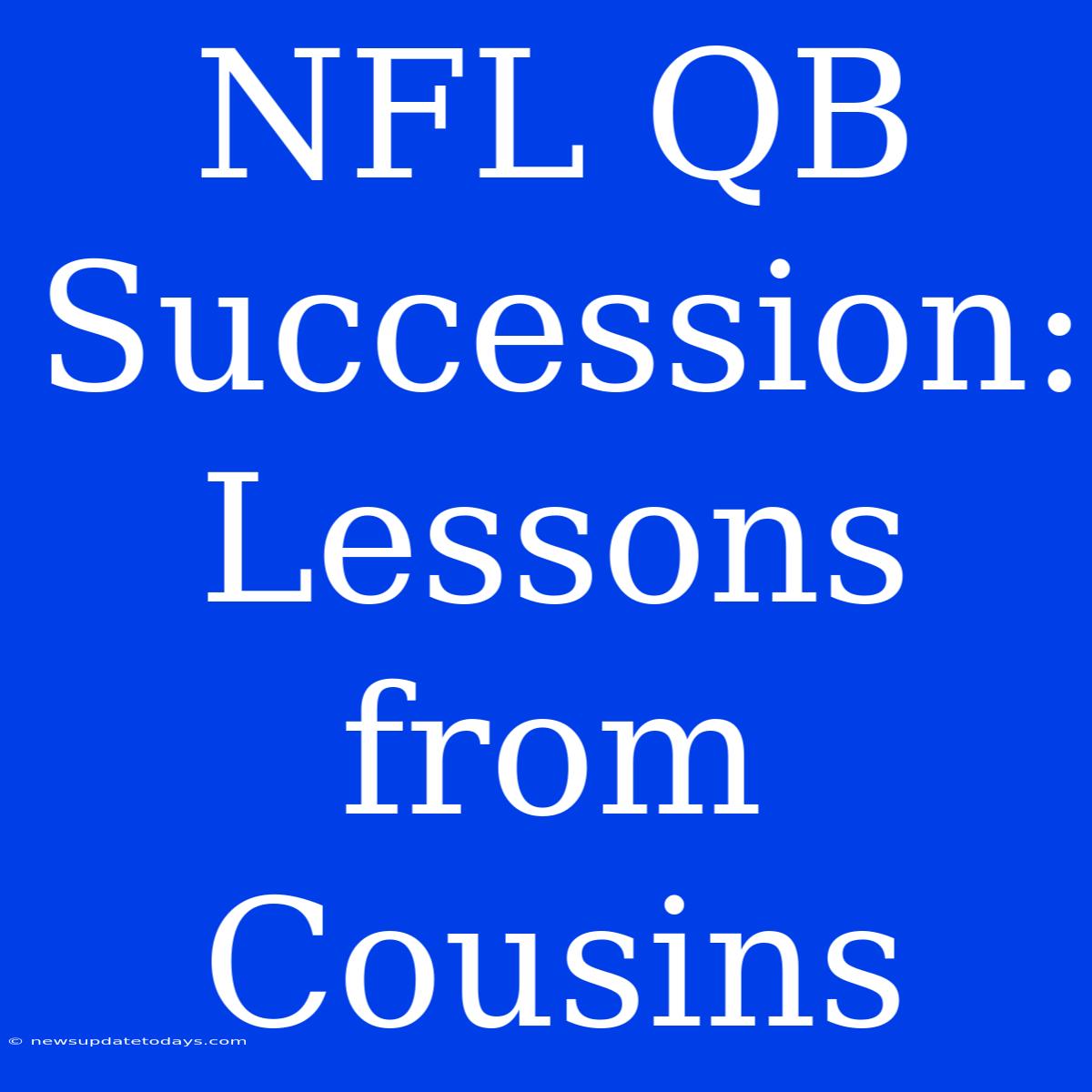NFL QB Succession: Lessons from Kirk Cousins' Career
The NFL's quarterback position is a fickle beast. One minute you're a rising star, the next you're battling for your job, or worse, watching from the sidelines. Examining the career of Kirk Cousins provides valuable insights into the challenges and triumphs of QB succession planning, both for teams and for players themselves. Cousins' journey isn't a typical "rags to riches" story, but it offers a compelling case study in navigating the complex world of NFL quarterback dynamics.
The Early Years: Understudy and the Pressure to Perform
Cousins began his career as a backup, patiently biding his time behind Robert Griffin III in Washington. This period highlights a crucial element in QB succession: the importance of developing a capable understudy. While Griffin's injuries eventually paved the way for Cousins' starting role, the team's initial investment in Griffin created a unique pressure cooker environment. Cousins had to prove himself consistently, not just to the coaching staff but also to a fanbase accustomed to a different style of play. This experience underscores the need for patience and unwavering dedication from the backup quarterback.
The Rise and the Plateau: Consistency vs. Elite Status
Cousins’ subsequent success in Washington, marked by consistent statistical performances, solidified his status as a capable starter. However, his inability to consistently deliver in high-pressure situations, particularly in the playoffs, prevented him from achieving elite quarterback status in many fans' eyes. This aspect of his career offers a crucial lesson: statistical consistency doesn't always translate to championship success. Teams need to look beyond the numbers and assess a quarterback's leadership qualities, clutch performance under pressure, and ability to elevate the team in critical moments. The "game manager" label, often attached to Cousins, serves as a cautionary tale for franchises seeking a franchise quarterback.
The Minnesota Vikings: A New Chapter, Similar Challenges
Cousins’ move to Minnesota presented a new opportunity, but the narrative remained largely consistent. He signed a lucrative contract, showcasing the value placed on reliable quarterback play, even without a Super Bowl ring. In Minnesota, Cousins faced similar pressures to deliver in the playoffs. While he has shown improvement in certain aspects of his game, the quest for playoff success remains elusive. This reinforces the idea that a quarterback's success is intertwined with the entire team's performance.
Key Takeaways for NFL Teams and Players:
- Develop a strong QB pipeline: Don't rely solely on drafting a franchise QB in the first round. Invest in developing backups and fostering internal competition.
- Look beyond the stats: Evaluate a quarterback's leadership, clutch performance, and overall impact on the team's dynamics.
- Patience and realistic expectations: Understand that QB succession takes time and rarely follows a perfect script.
- The importance of the right supporting cast: A great quarterback needs a solid offensive line, talented receivers, and a strong coaching staff.
Kirk Cousins' career isn't a story of ultimate triumph, but it's a valuable lesson for NFL teams and aspiring quarterbacks alike. His journey underscores the complexities of the position, the importance of holistic evaluation, and the continuous need for improvement at every stage of a career. Ultimately, the story of Kirk Cousins serves as a realistic framework for understanding the nuanced world of NFL quarterback succession.

